Religion and Social Justice in America: The Pull
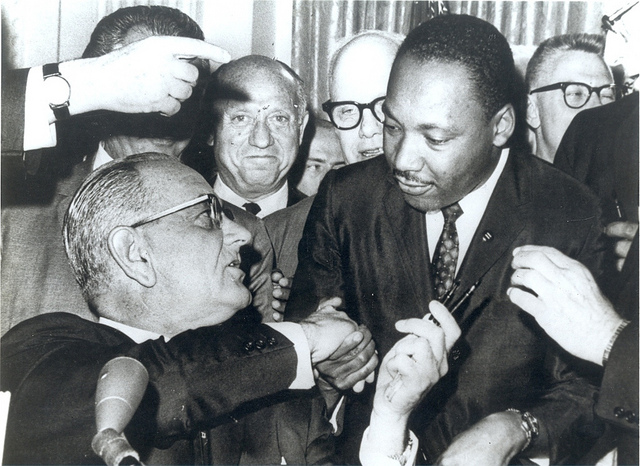
This piece is adapted from my research and notes for the speech I gave this past Sunday, May 20th, at the Orange County Freethought Alliance Conference. The talk was entitled “Push and Pull: The Role of Religion in Social Justice.” The follow-up to this piece will address the present-day role of religion in social justice and whether there is a secular alternative.
There is no doubt that religion has hindered social justice movements and continues to do so. I am not saying that said movements were dependent on religion, that their achievements could not have been accomplished without religion, that religion didn’t have its place in hurting the efforts of the movements, or even that religion didn’t necessitate them in the first place. At the same time, to deny religion’s role in certain aspects of specific social justice movements is to ignore an incredibly important aspect of American history, especially for certain minority communities.
As the discussion of religion’s role in hindering social justice took us all the way back to American slavery, let us start there, with Abolitionism. Christianity was used heavily by white abolitionists to motivate and inspire others to join their cause. Rather sentimentalist Christian propaganda, such as the highly influential Uncle Tom’s Cabin, propelled the cause forward. The central idea in this line of thinking was that the slaves were brothers and sisters in Christ and were thus undeserving of the horrendous treatment they endured.
The enslaved people themselves used religion in their quest for their freedom. Though Christianity was imposed upon them as part of their slavery, they turned it around to work in their own favor. Slaves used spirituals to communicate messages towards freedom. As is evidenced by Harriet Tubman’s nickname, the Biblical Moses was a commonly-used source inspiration towards freedom. Though the notion of the Jewish slavery in Egypt is historically questionable, when did the truth ever get in the way of a good, inspiring story? The Christian indoctrination of the slaves had backfired spectacularly: through “we are all children of God” and “brothers and sisters in Christ” lens, white Americans were led to sympathize with Abolitionism and slaves were empowered as human beings deserving of freedom.
The legacy of slavery was what made the Civil Rights Movement necessary. Beyond the obvious fact that Martin Luther King Jr., as well as many other leaders, were religious figures, religion was crucial in the movement. Churches served as essentially the perfect organizational tool: people were forced to be at least decent to fellow churchgoers, there were enforced weekly meetings and sense of community, there was built-in respect for what the man behind the pulpit had to say, and there was social pressure to participate both personally and financially. The malleable nature of the messages of religion, so evident with slavery, became even more consciously manipulated: the “children of God” narrative implied the necessity of equality.
Christianity was not the only religion to have a crucial role in organizing during the Civil Rights Movement. The Nation of Islam rejected the notion that Christianity, i.e. what they saw as “the white man’s religion,” could be used to liberate African-Americans. They advocated a religion that they saw as more authentic to their people’s history and background. Although most people remember the Nation for its divisive doctrines as voiced by the highly influential initial career of Malcolm X, its impact within the African-American community was immense. The Nation’s focus on reducing drug abuse, increasing self-reliance, and promoting gainful employment in the highly hostile environment in which it existed changed many lives.
The various waves of feminism and movements for women’s rights were not supported, and were often opposed, by organized monotheistic religion, but the idea of a more female-centric spirituality via various New Age movements was influential to many feminists. Moving away from the patriarchy inherent in Judeo-Christian religion and into a female-centric, female-empowered model was a way to free themselves of the self-hatred with which many of them were instilled through those religions.
The most prominent contemporary movement for civil rights is the LGBT movement. Most of the big muscle in the religious community is flexed in opposition to it, but just as some religious groups are against LGBT rights, some are for them. The United Church of Christ and Unitarianism in general has stood with the LGBT community. Their buildings have served as meeting places for groups like No on Proposition 8. While other religious groups have claimed that the mere existence of same-sex marriage violates their freedom of religion, the UCC has argued that being prohibited from performing same-sex marriages, which is permitted in their doctrines, violates their freedom of religion. Non-Orthodox rabbis have also generally been in favor of LGBT rights.
Even among mainstream Christians, the support for LGBT rights is growing. There is a growing segment of Christians who have adopted a more love-based faith in that they prefer to promote the “love thy neighbor” part of Jesus’s teachings over Paul’s writings or the Old Testament’s prohibitions related to homosexuality. This line of thinking is not limited to Christians that might be considered, let’s say, somewhat wishy-washy.


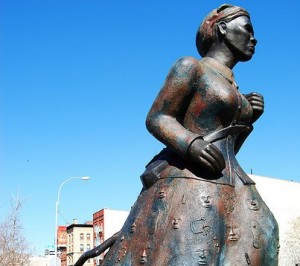

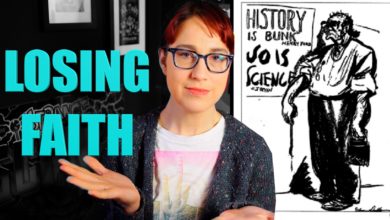
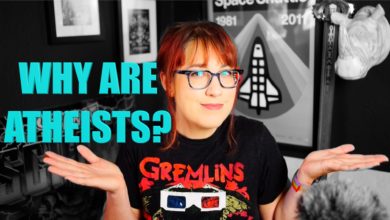
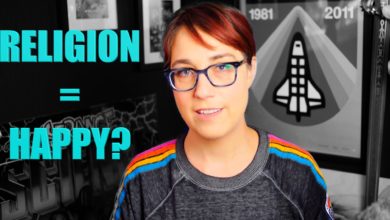
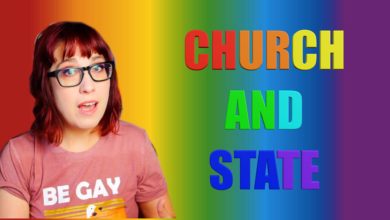
Heina,
Nice followup to part one.
Interesting followup, one that I probably wouldn’t have thought of. It does show that it’s all in the usage of religion of how one can effect the outcome of a movement.
Sad thing is the views held by the religious groups that wield the most power and the opinions they give often hinder progress.
For example, as my uncle once put it, that in the Catholic Church if you do not agree with their teachings that homosexuality is an abomination, then you’re not a true catholic.
With such mentality, it’s an uphill struggle.
This is a good series, but I can’t help thinking that it would be improved by adding the qualifier “in America” pretty much everywhere. Especially in the title.
You’re very right. I’m very US-centric in what I write, I need to qualify it.
It’s certainly not a fault. It’s just that the history of civil rights in other countries is quite different from the US. The US also has a peculiar relationship with religion that’s shared with virtually no other nation in the developed world, even the Christian-majority ones.
Absolutely. I didn’t take it as you pointing out a fault, just a fact, about what I had to say, and I appreciate it muchly.
Sometimes I wonder how the leaders of religious movements, whether they are for or against social justice, honestly see religion itself. Do they genuinely believe in the spiritual and supernatural elements? Or do they see religion merely as a tool, a means to an ends?
It’s very difficult to prove or disprove a person’s true views, not the least of which because they may have advocated for two different but mutually contradictory ideas. Some have a tendency to simply take others at their words about this, but my view is that actions distinguish better than words.
Ultimately, I would still take correct behavior for the wrong reasons over incorrect behavior (regardless of cause).
I also have to take a great deal of issue with the idea that newage is good for feminism. It seems to pack in a whole lot of gender-essentialism, with the particularly harmful messages that enduring an extremely painful birth is good for you, eschewing vaccines and other public health interventions makes you a good mom (and a good mom just “knows” what’s best), and telling women their worth is based on traditionally female-coded activities like emotions, intuition, nurturing, etc. It also has very harmful undertones that science is anti-feminine, and that rationality is a male-centered approach to looking at the world that is no better than any other “ways of knowing” (to which this very feminine female rationalist says: fuck that shit!!). In other words, it seems like it’s basically a rehash of all the old “separate spheres” bullshit with slightly quirkier clothing.
Further, I think that while it may make women feel better and potentially inspire activism in other domains (anti-discrimination and anti-gender-violence, for instance; both worthy goals, but neither of which *need* newage), it is inherently limited simply because it exalts the separation of women from endeavors that do real good in the world and have real transformative power, encourages irrational thinking and all the real and potential harms that entails, and entrenches harmful gender stereotypes that are far easier to use against women than for them (and even if they could be used for women’s advancement, they’re still bullshit!).
Uh, Heina didn’t say that New Age NRM faiths are good for feminism, she said that they were part of the feminist response to patriarchal faiths like the Abrahamic set.
There was no implication that it’s still useful.
Please see my first paragraph. I’m not advocating for New Age, I’m saying that it played a role. There’s no point in denying that it had a role.
I guess I wasn’t clear. I was responding mostly to this sentence: “Moving away from the patriarchy inherent in Judeo-Christian religion and into a female-centric, female-empowered model was a way to free themselves of the self-hatred with which many of them were instilled through those religions.”
Especially because a lot of the things newage sells are so embedded with the harmful attitudes about gender essentialism, that it’s not really empowered and not actually all that different from what the patriarchy is selling. So I really have to quibble with the idea that it was “freeing” much of anything, as opposed to “repackaging.” And, I have a HUGE beef with those* in the homebirth movement who insist that pain during labor is character-enhancing and necessary for “true” maternal bonding, and the extremophiles* in the attachment parenting community who, like, define themselves through their children and how obsessively they raise them. Ultimately, I feel like no matter how positively it gets spun, this focus on pain and self-sacrifice is really just more self-hatred. It’s like this “mother-goddess” thing is just reaction formation against misogyny, not actually being free of misogyny.
*Of course, this is not meant to represent EVERYONE in these groups, just a vocal portion.
I didn’t say “totally non-problematic and awesome role”, just “a role.” I don’t disagree with what you have to say, I just can’t cover All the Things in a single piece, especially when this one was about examining and acknowledging the role. Of course there are issues.
I don’t think Heina made this point (as she said, she can’t cover everything), but I think it is relevant. The nineteenth and early-twentieth century social reform movements in Britain and the U.S. were largely operated by women. In fact, social reform (abolition, temperance, “poor relief,” as it was called) was probably the one arena of PUBLIC action where women were seen as having special authority. This is primarily because social reform was viewed as an extension of moral domesticity — the Angel in the House became the Angel in Society. In that these reform organizations were also usually Christian (especially evangelical Christian), there was not always opposition by the male authorities (whether ecclesiastical, secular, or domestic). Certainly, though, this did not extend to all reform movements, particularly to suffrage.
What’s funny is that, in the US currently, the Christian evangelical Right Wingnuts inhabit the same political party as those looking to essentially dismantle social programs that are meant to “relieve” the poor (food stamps, welfare cash assistance, medicaid, etc.).